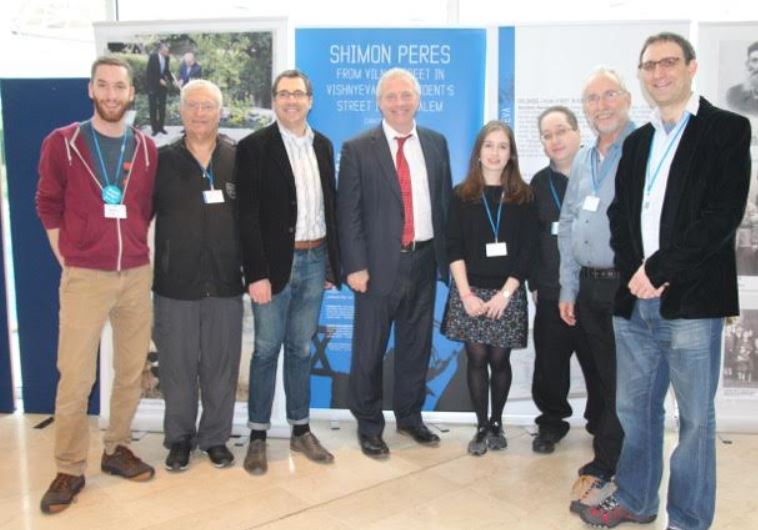Limmud UK touts ‘start-up community’
“Israel describes itself as a ‘start-up nation’ and I think Limmud is a sort of startup community."
 From left: Limmud Conference 2015 Co-Chair Michael Gladstone, Limmud FSU Founder Chaim Chesler, outgoing Limmud Chair Kevin Sefton, MP John Mann, Conference Programming Co-Chair Deborah Blausten, Curator Yoram Dori, and Int'l Steering Committee Chair David Bilchitz(photo credit: COURTESY OF BATIA DORI)
From left: Limmud Conference 2015 Co-Chair Michael Gladstone, Limmud FSU Founder Chaim Chesler, outgoing Limmud Chair Kevin Sefton, MP John Mann, Conference Programming Co-Chair Deborah Blausten, Curator Yoram Dori, and Int'l Steering Committee Chair David Bilchitz(photo credit: COURTESY OF BATIA DORI)